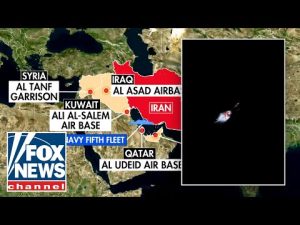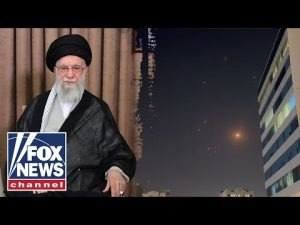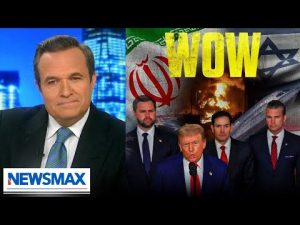In a significant twist of geopolitical drama, President Trump appears to be rewriting the traditional storyline of U.S. engagement in the Middle East. Just recently, he took decisive action aimed at curbing Iran’s nuclear ambitions, vexing Democrats and drawing lines within his own party. The president stood firm, reminding the world that during his time in office, Iran would not acquire a nuclear weapon. He emphasized a message of strength and determination directed at Iran’s leaders, pledging to collaborate with allies to neutralize the threats posed by Iran and its terrorist proxies.
This move has stirred up quite the conversation, particularly among those within Congress. Democrats, led by House Minority Leader Hakeem Jeffries, wasted no time in critiquing Trump, suggesting that he bypassed necessary congressional authorization for military action. They warn that such strikes could drag the United States into a quagmire reminiscent of past conflicts, stirring concerns about a potential war in the region. Meanwhile, former Florida Congressman Matt Gaetz weighed in, declaring Trump’s decision a “win” not only for the president but also for peace in the Middle East itself.
It seems that this moment signifies a battle within the Republican Party as well. On one side, the MAGA movement, led by pro-peace advocates, is keen on diplomatic routes. On the other side are members of the party still clinging to neoconservative interventions, like Senator Lindsey Graham and talk show host Mark Levin, who are advocating for more aggressive tactics, including regime change in Iran. However, Gaetz argues against such actions, noting that regime change would be risky without any clear plan for the aftermath.
This near-ceasefire moment has sparked varied reactions among political pundits. Some conservatives are expressing skepticism about Trump’s move, fearing it might not go far enough, while others are cautiously optimistic, feeling it shows Trump’s ability to navigate the complex landscape of Middle Eastern politics without resorting to all-out war. The stark divide underscores just how contentious foreign policy discussions can become within the party, especially as peace efforts intensify.
The validity of Trump’s actions has also been debated concerning constitutional authority. Some argue that he was well within his rights to act in self-defense and that such “force protection strikes” are acceptable without seeking prior congressional approval. Critics, though, maintain that permanent military engagements require legislative oversight to ensure greater accountability. The tightrope Trump is walking reflects the complexities of modern foreign policy where swift action is often required, but the ramifications can reach far and wide, impacting both national interests and regional stability.
As the dust settles from the recent strikes and diplomatic initiatives, it’s clear that this moment could mark a turning point in U.S.-Iran relations. Whether it leads to lasting peace or rekindles longstanding tensions remains to be seen. However, one thing is certain: the conversations surrounding this pivotal issue will continue to be as heated as ever, with elected officials and commentators forever weighing the merits of peace against the drums of war.







